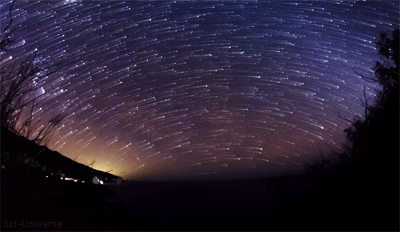I heard some years ago of a man who decided to sail, solo, from San Francisco to Hawaii – or perhaps the reverse. Quite a trip, 2300+ miles, by the shortest route. He was an atheist when he set out. After weeks of winds and waves – but even more, after seeing the immense beauty of the starry sky arching over him night after night, in pure air, far from all light pollution – he came into port a believer in the Creator.
Maybe a true story. Maybe not. The person who told it to me is a certifiable truth-teller. And as they say in Italy, se non é vero é ben trovato. Because either way, it speaks a neglected truth, which came back to me over the weekend, the peak days this year for the Perseid Meteor Shower.
A priest informs me that, in more Catholic times, the showers were called the “tears of St. Lawrence,” for the proximity to his feast. People have been watching them a long time, and their history is – well, cosmic. They were especially strong this year because of Jupiter’s interaction with the Swift-Tuttle Comet. And not just this year. There were things burning up in the atmosphere the past few days torn loose by Jupiter periodically, going back to the nineteenth and twentieth century – and according to astronomers at least, in another conjunction, to around 1000 AD.
I contrive to be somewhere remote and dark (desert is best, but an open field in a forest works too) when this, the most spectacular of the meteor showers, returns every August. I had to be content this year looking off from the deck at home.
But unless you make an effort, at least now and then, to be in a place where you can see 200 meteors an hour or, just as impressive, the all-night intricacies of the Milky Way or the thousands of stars (a constant presence for our ancestors) invisible from well-lit cities and suburbs, you will likely miss the force of the Psalmist: “The heavens declare the glory of God.”
St. Paul seemed to think such things obvious. At the beginning of the Epistle to the Romans, he writes: “The wrath of God is indeed being revealed from heaven against every impiety and wickedness of those who suppress the truth by their wickedness. For what can be known about God is evident to them, because God made it evident to them. Ever since the creation of the world, his invisible attributes of eternal power and divinity have been able to be understood and perceived in what he has made. As a result, they have no excuse; for although they knew God they did not accord him glory as God or give him thanks.”

Things have changed quite a bit since the days of the Apostle to the Gentiles. For reasons not easy to spell out, it’s usually the scientists, especially the non-believers among them, who ooh and aah these days over the glories of the heavens. They see the grandeur in nature that too many Christians, huddled indoors, don’t trouble themselves to appreciate. It’s no wonder that for many people astronomy seems wonderful, and Christianity stuffy.
C.S. Lewis opens his great little book The Abolition of Man (which you should read – many times) with the case of two radical secularists who try to cut down all the high things to “rational” size. In a textbook no less, they urge students to understand that, for example, to say of a waterfall “that’s sublime” really only means something subjective: When I look at that water tumbling over rocks, I have sublime feelings. Lewis says, emphatically, No. To say, “that’s sublime,” literally means something. A waterfall, the thing existing in nature is, itself, properly appreciated, sublime.
Getting away from our everyday lives, which are not lived face-to-face with the Creation, as most people lived in the past, might cure a lot of what we think purely intellectual ills. There were – and are – few atheists among people in close contact with nature. When Karol Wojtyla was still just a professor of philosophy in Poland, he had a colleague who was a convinced atheist – when he was sitting at his desk. When he went hiking with the future JPII in the Tatras Mountains, by some obscure alchemy of man and nature, he would find himself a believer. I seem to recall that he went back and forth like this, however improbably, several times.
Odd, yes, but certainly no odder than a people who claim to believe in the Creator yet can’t be bothered to pay much attention to what he’s actually created.
Philosophers and theologians sometimes speak of the “disenchantment” of nature. But there are two kinds of disenchantment.
One rid the world of the idolatrous beliefs that sun, moon, stars, were gods. The opening pages of Genesis do away with that in one blow. But the other disenchantment, a disastrous one, came in with modern science and its bastard offspring, materialism, abetted by a technological attitude towards the world, as if nature were merely a storehouse of matter and energy to use as we please, even to reshape ourselves.
Pace well-meaning environmental radicals, nature is not our mother, and earth is not Gaia, not a goddess. But as the old Eastern Christians used to say, the Creation is God’s “second book,” alongside the Bible. Two “books,” then, to live by. Which begins with appreciating the splendors that make them worth studying.
Pope Francis spoke in Laudato si’ about the toll on nature of our “throwaway culture,” and of human activities like mining and agriculture, even (to no little bemusement) the use of air conditioners. And called for various changes. You can, if you are of hardy disposition, enter such debates over what it would really mean to respect the Creation – including the creature we, optimistically, call homo sapiens.
But you might, first, step outdoors. And open your eyes.















